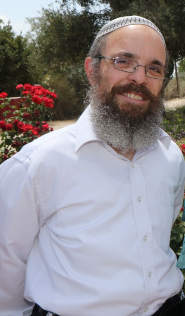בפתח ספרו “האדם החד ממדי” שואל הרברט מרכוזה “סכנת השואה האטומית, המאיימת למחות את המין האנושי מעל פני כדור-הארץ – האם אינה מסייעת גם להגן על אותם כוחות עצמם, המנציחים סכנה זו?” ומרכוזה משיב: “המאמצים למניעת שואה זו מאפילים על החיפוש אחר סיבותיה האפשריות בחברה התעשייתית בת-ימינו.”[1]
ואכן, בעוד שהוקדשו מחקרים רבים מספור לדיון על האופנים בהן האנושות יכולה למנוע את חורבנה במלחמה גרעינית, על הממדים הפוליטיים והסוציולוגיים הפנימיים של העידן הגרעיני ישנם מחקרים מעטים ולרוב הם אינם עומדים במרכז תשומת הלב האקדמית והציבורית. את הסיבה לכך, אם נאמץ את טענתו של מרכוזה, יש לחפש באותם גורמים פוליטיים המעוניינים לשמר את סכנתה של השואה האטומית בכדי להבטיח את שלטונם. אציין כבר עתה, טענה שנפתח לאורך המאמר, שהשימוש בתיבה ממד פנימי, מכוונת לעמוד על התוצאות התכליתיות של פרויקט גרעיני צבאי המופנות כלפי פנים (כלפי החברה) ע”י צמרת השלטון. כלומר, לא לתפקיד של נשק גרעיני כאמצעי הרתעה אל מול מדינה אויבת (כפי שלרוב נוטים להבינו), אלא לתפקיד של פרויקט גרעיני צבאי כמסדיר ומעצב יחסים חברתיים.[2]
חוקרי מדע המדינה עמוסים בתיאוריות מגוונות שמטרתן היא למנוע מהאנושות להידרדר למלחמה גרעינית. בהתאם לגישה זו הסכנה הטמונה בנשק גרעיני היא תמיד “חיצונית” — סכנה מפני מדינת אויב. על ההיסטוריה הגרעינית הישראלית נכתבו מספר מחקרים העוסקים בדיפלומטיה הגרעינית בין ישראל לארה”ב שתכליתה הייתה להגיע למודוס עם הקהילה הבינלאומית. לחצים פנימיים וחיצוניים הביאו לכך שעל אף שלישראל יש פרויקט גרעיני-צבאי היא אינה מדינה גרעינית. “פיקציה דיפלומטית” זו היא תוצאה של מדיניות גרעינית “עמומה” לפיה ישראל אינה מכריזה מה יש לה ומה אין לה. מדיניות זו מתמצת בנוסחה המפורסמת שישראל לא תהיה המדינה הראשונה שתכניס נשק גרעיני לאזור. על כך, כאמור, נכתבו מספר מחקרים, שיכולים להיות מקוטלגים תחת הכותרת של “מדיניות חוץ” ישראלית בסוגיה הגרעינית. אולם, על הממד הפנימי (מדיניות פנים) כמעט ולא נכתב דבר.
אפשר לעלות על כך תהיות רבות שכן – לבטח בתקופת המלחמה הקרה — האספקטים הסוציולוגיים והפוליטיים-פנימיים של הנשק הגרעיני היו בולטים וגלויים. בארה”ב מתקיים דיון (גם הוא מתקיים בשוליים) על התוצאות התרבותיות והחברתיות של העידן הגרעיני שאחד מהחוקרים כינה “פחד גרעיני” (Nuclear Fear), אולם בארץ ישנה התעלמות מהיבטים אלו.[3] עם התפשטות הנשק הגרעיני היו שניסו להביא את הציבור לבחון את התוצאות החברתיות הפנימיות של העידן הגרעיני. היו שטענו שהיבט מכריע של העידן הגרעיני הוא הפיכת קהילות שלמות ל”קהילות פחד” החיות ללא הפסקה תחת חרבה המאיים של פצצת האטום והמימן.
לרוב נטען שהפיכתן של חברות שלמות ל”קהילות פחד” הינה תוצאת לוואי של התפשטות הנשק הגרעיני בעולם, אולם טענתו של מרכוזה דורשת לברר האם אין זו דווקא מטרה של מחייבי החימוש הגרעיני במדינות השונות? היחידים שניסו להתמודד עם סוגיה זו בישראל ברצינות המתבקשת היה “הוועד לפירוז גרעיני של ערב וישראל”.
***
עם היוודע בתקשורת העולמית בדצמבר 1960 על הפרויקט הגרעיני הישראלי החלו להישמע בארץ קולות בעד ונגד חימוש ופירוז גרעיני. בראשית 1962 התארגנה קבוצה של פרופסורים ואישי ציבור בהובלת ישעיהו ליבוביץ, אליעזר ליבנה, אפרים אורבך, מרטין בובר, שמואל סמבורסקי (שהיה בעברו חבר הוועדה לאנרגיה אטומית) ונוספים ב”וועד לפירוז גרעיני של ערב וישראל”. מטרת הוועד לא הייתה להפוך לתנועת המונים או מוקד כוח פוליטי חוץ-פרלמנטארי, אלא לקיים דיונים עם מקבלי החלטות, מעצבי דעת קהל והציבור בכללותו על המשמעויות הרות הגורל של כניסת האזור הערבי-ישראלי לעידן הגרעיני. על הוועד לא נכתב כמעט דבר והם אינם מוזכרים בספרות ההיסטורית על התקופה על אף שהיו חברים בוועד חלק נכבד מאנשי הרוח של התקופה. החוקרים היחידים שנדרשים להם ובקצרה הם אלו שעוסקים בסוגיית הגרעין הישראלי.[4]
ליבוביץ מילא תפקיד מרכזי בוועד והשתתף בדיונים ובאספות רבות שבהם דנו בתוצאות האפשריות של כניסת האזור לעידן הגרעיני. הסוגיה הגרעינית כשאלה מוסרית העסיקה אותו – ואנשי רוח נוספים בוועד – עוד מהשלב שקדם לחשיפת הפרויקט הגרעיני. לאורך שנות פעילות הוועד (הוועד חדל מפעילותו בשנת 1967) הוא פרסם מאמרים רבים בעיתונות היומית, הפיץ גילויי דעת, כרוזים והודעות לתקשורת, הכין לקטי עיתונות על פירוז האזור מנשק גרעיני והוציא ספר אחד “ישראל-ערב: חימוש או פירוז אטומי”. עם זאת, בוועד לא מילא ליבוביץ את התפקיד של איש הרוח המדבר את קול המוסר, אלא הוא עסק בהיבטים הפוליטיים השונים של כניסת נשק גרעיני לאזור. למעשה, גישתו של ליבוביץ כלפי הפרויקט הגרעיני הישראלי, שאותה ניסח ככלל על היחס בין מדיניות פנים למדיניות החוץ, טומנת בחובה משמעויות מרחיקות לכת לחוקרים בתחום מדע המדינה וחקר החברה ההיסטוריה והפוליטיקה.
לספר של הוועד תרם ליבוביץ מאמר שכותרתו “החימוש הגרעיני מבחינת מדיניות פנים”.[5] המאמר, שכמעט חמישים שנה עברו מאז פורסם, מזמן ונשכח ולא זכה להתייחסות של חוקרי הגותו של ליבוביץ, חוקרי ההיסטוריה הגרעינית הישראלית או חוקרי מדע המדינה על אף שהוא מציע דרך התבוננות שונה מהמקובל על הפרויקט הגרעיני הישראלי מחד ועל הגותו של ליבוביץ מאידך. באמצעות מאמר זה ומאמרים נוספים ניתן לעמוד על השקפתו של ליבוביץ על הממד הפוליטי הפנימי של החימוש הגרעיני הישראלי.
***
ליבוביץ הסביר שקיים טעם במלחמה במידה והיא “מקדמת את סיפוק הצרכים הנקבעים על ידי מעמדה הבין לאומי של המדינה ומשרתת את אותו הקו של יחסי-חוץ שיש להמשיכו לאחר המלחמה.” כלומר, בהתאם לאמרה המפורסמת של קלאוזביץ’, שאין המלחמה אלא המשכה של המדיניות בדרכים אחרות — המלחמה משרתת מדיניות פוליטית ספציפית. מובלעת בקביעה זו הנחה ברורה מאליה לפיה “מדיניות ביטחונית” היא בהכרח פונקציה של מדיניות חוץ.
ההנמקה למדיניות ביטחון כלשהי — ומדיניות ביטחון היא חלק ממדיניות חוץ – לא נובעת מתוך עצמה, אלא תכלית מדיניות החוץ היא הגשמת תכלית בתחום מדיניות הפנים. ליבוביץ ניסח זאת במשפט “אין מדיניות חוץ — שבה כלולה מדיניות הביטחון — אלא המשכה של מדיניות פנים”. במילים אחרות, מדיניות החוץ היא לא פעולה פוליטית שנתיבה קבוע מראש, הניתנת להבנה מתוך איזה תכתיב בלתי תלוי בסובייקטים הפוליטיים, בהתאם ל”אינטרס האומה” ההגיוני, החד-משמעי והקבוע. להפך. מדיניות החוץ ניתנת להבנה רק מתוך שאיפתם של מקבלי ההחלטות להגשים את האינטרסים הספציפיים שלהם — ואינטרסים אלו הם תמיד פנימיים. “מכאן”, ציין ליבוביץ “שהמשטר והממשל הפנימי נעשה גורם מכריע לגבי מדיניות חוץ, ובעקבותיה גם לגבי מדיניות הביטחון”.
ליבוביץ טען שמעיון בהיסטוריה הפוליטית ניתן להיווכח שהשליטים רואים את צרכי מדיניות החוץ (ואת השפעתה החוזרת של מדיניות זו) באספקלריה של השפעת מדיניות החוץ על כושרם וכוחם להחזיק בשלטון. נתון זה טען ליבוביץ מביא לכך שמדיניות החוץ (ואחריה, בתורה, מדיניות הביטחון) נעשית “פונקציה של אינטרסים שלטוניים”. תיאור מציאות שלטונית זו, הדגיש, תקפה גם לגבי משטר דמוקרטי תקין שבו מתקיימים סדרים שלטוניים וחילופי שלטון.
הסיבה מדוע רובו המוחלט של הציבור וביניהם חוקרי החברה וההיסטוריה, אינם מבינים נכון את היחס בין “פנים” ו”חוץ” טמונה באשליה שיושבת בראשם של האגנטים שהמדינה היא גוף חי, אורגן, ולא יחס של קיבוץ אנושי איש לרעהו ואיש לעצמו. המדינה היא לא יותר מאשר מנגנון, קבע. ליבוביץ הסביר שהעובדה ש”מימי לא ראיתי מדינה” מפתיעה מלומדים כל הזמן.[6] לפי ליבוביץ המדינה היא לא יותר מאשר מסגרת של “כוח כפייה מוסמך”, נטולת כל משמעות ערכית ומשמעותה היחידה היא פונקציונאלית ואינסטרומנטלית בלבד.[7] המדינה היא לא ביטוי של ערך ואין לה ערך.
הטענה שהמדינה הדמוקרטית מתבדלת מצורות משטר אחרות מבחינת התוכן והפונקציה של האינטרסים השלטוניים אינה מקובלת על ליבוביץ. לדידו, המושג “מדינה דמוקרטית” היא פרדוקס. הדמוקרטיה מנוגדת למהותה של המדינה כמנגנון, שכן הדמוקרטיה הינה סדר חברתי המגן על היחיד בחברה מפני מדינתו.[8] במובנה הרחב הדמוקרטיה היא זירה המאפשרת מאבק בין בני אדם המחזיקים בערכים ואינטרסים שונים והסדר החברתי הדמוקרטי מאפשר לאלו לחתור לחברה המאורגנת על פי ערכיהם.[9]
מכיוון שליבוביץ מתנגד להשקפה המייחסת משמעות ערכית למדינה (לדידו המדינה גם אינה המכשיר להגשמת ערכים), יש לשיטתו לדון על טיבה ותוכנה של המדינה רק מצידה האינסטרומנטלי, כלומר כמנגנון פרודוקטיבי יותר או פחות לאותו קיבוץ אנושי. ליבוביץ ציין שזהו ההבדל המהותי בינו לבין בן-גוריון, דבר שהביא אותו גם לעמוד כנגדו בסוגיה הגרעינית: “בשבילי אין למדינה אלא משמעות אינסטרומנטלית; לבן-גוריון הייתה למדינה משמעות ערכית”.[10] זו הסיבה מדוע בממלכתיות הבן-גוריוניסטית הוא ראה וריאציה של הפשיזם האירופי — מכיוון שהיא הופכת את המדינה לערך, לממלכה.
ליבוביץ טוען שהמנגנון השלטוני מתבטא באיתנותו לכוף את רצונו על הנשלטים ו”ככל שהמנגנון השלטוני מסוגל פחות לכוף את רצונו על נשלטיו, טוב יותר לאדם”. הוא ציין שיש לתת למנגנון השלטוני כוח כפיה מסוים (“אני לא אנארכיסט” ציין לא-פעם), אולם כוח זה יש לצמצם למינימום ההכרחי. מכיוון שהמדינה אינה מכשיר להגשמת ערכים, שכן הגשמת מטרות ערכיות הן סוגיה אנושית ולא מדינית, את תפקידה של המדינה יש להגדיר מן ההיבט של הצורך; כלומר, כמכשיר להבטחת והגשמת צרכים. תובנה זו דורשת, ראשית כל, לברר אילו צרכים המדינה חותרת למלא. עם זאת, מכיוון שאין דבר כזה “מדינה” שכן האחרונה היא פטישיזם – סובייקט מדומיין – יש לבחון את ה”צורך” שאותה המדינה מצהירה שהיא מתכוונת להגשים ע”י התבוננות באינטרסים (צרכים) של השליטים.
בתת-פרק “אינטרס השליטים קשור במדיניות הגרעינית” דן ליבוביץ בקשר בין תיאוריה פוליטית לאקטואליה פוליטית. הוויכוח הנוכחי על המגמה לחימוש גרעיני, ציין ליבוביץ, נידונה לרוב מנקודת המבט הביטחונית ופחות מנקודת המבט של מדיניות הפנים. כלומר, לרבו דנו בסוגיה הגרעינית תוך שאלות כגון: האם הנשק הגרעיני יחזק את מעמדה של ישראל מול אויביה? (מדיניות ביטחון) האם הנשק הגרעיני ייפגע ביחסה של ישראל עם ארה”ב? (מדיניות חוץ) ושאלות דומות. “הכת השלטת” — ובכינוי זה הוא משתמש לסירוגין בכדי לתאר את קבוצת בן-גוריון-פרס החותרת לחימוש גרעיני – חפצה בהעמדת הדיון כולו על הנושא הביטחוני “תוך התעלמות מחושבת ומכוונת מכל הנקודות האחרות”. ה”נפנוף” בדגל הביטחוני, מפעיל לחץ על מתנגדי החימוש הגרעיני ומעמיד אותם כחסרי חוש פטריוטי, חסרי הבנה בסוגיות ביטחוניות ואף כבוגדים במולדת. דבר זה רחוק מהאמת טען.
“עד עכשיו” הדגיש “לא נידונה כל צרכה הבחינה של מדיניות פנים — של האינטרסים של השלטון ושל בעלי השלטון — שאף היא קשורה במדיניות הגרעינית”. הפניית הזרקור כלפי פנים מחייב דיון בשתי שאלות:
א. האם אך ורק שיקולים ביטחוניים (ואלו גם יכולים להיות מוטעים) מנחים את הצמרת הפוליטית במדיניותה הגרעינית “או שמא מחפה השלט הביטחוני על אינטרסים שלטוניים”?
ב. מהי ההשפעה של אותה מדיניות גרעינית על מבנה החברה, השלטון והמשטר בישראל?
ליבוביץ עונה על השאלה הראשונה בשלילה ובכדי להבין מדוע הוא שולל טיעון זה ומנגד טוען שאת המוטיב העיקרי של הקמת הכור הגרעיני יש לחפש במדיניות הפנים, יש להציג את הפרכת הטיעונים מתחום הביטחון. את הקו של “שליטינו” אין להבין מתוך הבחינה הביטחונית בלבד. רעיון “אווילי” הוא שישראל תוכל להבטיח את קיומה הפיסי והמדיני ע”י הכנסת נשק גרעיני לאזור. הסיבה לכך מצויה בהנחה שברגע שנשק זה יהיה בידי ישראל גם שכנותיה ישיגו נשק גרעיני. הנחה זו מקובלת שנים רבות על מרבית החוקרים ותמציתה גורסת שכניסת נשק גרעיני ולו על ידי מדינה אחת באזור תוביל לגרעון הסכסוך.[11] “אם יימצא בידינו ובידיהם כאחד — פירושו כאילו יימצא בידיהם בלבד” הסביר וזאת בגלל יחסי השטח והאוכלוסייה הבלתי פרופורציונאליים בין ישראל למצרים (לדוגמא). פצצה גרעינית שתפגע בישראל לא רק שעלולה לחסל את משטרה המדיני, אלא עלולה להביא לחיסולו הפיסי של הציבור היושב בארץ (לבטח בגבולות הצרים שלפני 1967).
מנגד, פצצה גרעינית שתפגע במצרים עלולה לפגוע קשות בעיר אחת או שתיים, אולם המדינה המצרית לא “תחוסל”. לדידו של ליבוביץ הסבר למדיניות של “סכלות פושעת” זו ניתן להבין רק מתוך ראיית בעיות מדיניות החוץ והביטחון “כמשקפות בעיות של מדיניות פנים”. ליבוביץ ציין שהשקפה ביטחונית זו איננה נחלת הצמרת השלטונית בכללותה, והתכוון לאישים כיגאל אלון ויצחק רבין שהתנגדו להשקפת בן-גוריון-פרס. האחרונים טענו שישראל נמצאת במצב של “עם לבדד ישכון” ושאיבת הערבים כלפי ישראל אינה נתונה לשינוי כדברי פרס[12]ולפיכך חימוש גרעיני הינו הכרח קיומי מבחינתה של ישראל.[13] אלון ורבין שהתנגדו לחימוש גרעיני הרתעתי מפורש (מדיניות שפרס ודיין צידדו בה) טענו שגרעון צבאי של האזור ינטרל את יכולתה של ישראל להגיע להכרעה הודות ליתרונותיה המובהקים בעימותים קונבנציונאליים ועקב כך ימנע יישובו של הסכסוך. אלון, ממובילי הקו האנטי-גרעיני, טען שגרעון האזור יביא “לאימה ללא מאזן” ולא “למאזן אימה”.[14]
ליבוביץ הסביר שבכל התחומים הנוגעים לסוגיות ביטחוניות ומדיניות חוץ יש לחשוף את האינטרסים השלטוניים הפנימיים מחד ואת התוצאות החברתיות המבוקשות ע”י השליטים. ראוי להביא את דבריו על התוצאות החברתיות של החזקת השטחים הכבושים בידי ישראל במלואם:
“אם שכר ההחזקה בשטחים יוצא בהפסדו אפילו מבחינת מדיניות חוץ וביטחון — התוצאות של כיבוש זה מבחינת מדיניות פנים והמציאות החברתית והתרבותית בישראל חמורות מזה בהרבה. הכוונת המחשבה והרצון של העם בשעה זו בעיקר לקיום השלטון הישראלי בשטחים וריכוז עיקר המשאבים של המדינה במשימה זו באמתלה של צרכי ‘הביטחון’ המדומה מאפשרים את הסחת הדעת מן הבעיות האמיתיות המעיקות של העם היהודי במדינתו, והם משמשים הצדקה להשתמטות מכל מאמץ לפתרונן. ‘הביטחון’, המתגלם בהחזקה בשטחים… אינו האינטרס של העם, של החברה או של המדינה אלא משמש את האינטרס של הממסד: הוא מאפשר שותפות של קפיטליסטים וקיבוצניקים, של קלריקליים ואתיאיסטים, המחלקים ביניהם את טובת ההנאה מן השלטון לפי מפתח מוסכם”.[15]
לפי ליבוביץ, מדיניות החוץ והביטחון של ישראל ובתור כך נכלל חימושה הגרעיני היא לא פחות מאשר אמצעי לעיצוב החברה ע”י הצמרת הפוליטית. כך, מדיניות החוץ היא הארכה של מדיניות הפנים בהתאם לאינטרסים של אותו אגף בצמרת הפוליטית שידו על העליונה. “סיפוח, פרוטקטורט ופדרציה — הם טריקים מזוהמים של קולוניאליזם” ציין.[16] מרותו של המשטר קולוניאלי (כמו כל משטר) מופעל קודם כל כלפי הציבור שהוא חלק מאותו המשטר והתוצאות של משטר זה, הסביר, יביאו ל”מפלה פנימית איומה.”[17]
טיעונו של ליבוביץ מתחזק בעקבות “חולשת הטיעון הביטחוני בפי מצדדי החימוש הגרעיני הישראלי” שהצגנו לעיל. תומכי החימוש לא טענו שהחזקת נשק גרעיני בידי ישראל לא תוביל להחזקת נשק גרעיני בידי אויבותיה; הם לא סתרו את המסקנה שנשק גרעיני שיימצא בידי שני הצדדים לא ישמש גורם מרתיע ממלחמה אלא פרובוקציה למלחמה; הם לא “נטשו את עמדתם” גם שהתקדמותה של ישראל בפרויקט הגרעיני פגעה ביחסי הידידות בין ישראל לארה”ב וצרפת והובילה את ישראל לאוריינטציה על גרמניה המערבית ששר ההגנה שלה, פרנץ יוזף שטראוס, היה ממחייבי החימוש הגרעיני האירופי. עובדות אלו, טען ליבוביץ, המבטאות סתירה בין האינטרס הביטחוני המוצהר של ישראל לבין התוצאות בפועל של מדיניות זו “מן ההכרח שתעורר ספקות בכנות טועני הטיעון הביטחוני”.
אולם, בעוד שהטיעונים האחרונים הפריכו את הטיעון הביטחוני של מצדדי החימוש הגרעיני, הם היו כולם בתחום הפרכת מדיניות החוץ והביטחון הספציפית התומכת בחימוש גרעיני ישראלי. עתה פנה ליבוביץ לתחום מדיניות הפנים.
כשליבוביץ משתמש בתיבה “מדיניות פנים” הוא עושה שימוש במושג במשמעותו הרחבה — למאבקי האינטרסים והכוחות החברתיים על השימוש בכוח הפומבי, במדינה; שימוש שהוא מעשה השלטון. הוא אינו מתכוון לתוכן המקובל של המושג בלשון היום-יום כמדיניות שעניינה סידורים מוניציפאליים כאלו ואחרים בלבד (כפי שלרוב תופסים זאת), אלא לכל הגורמים שקובעים את גורלה של חברה ומדינה דוגמת ההסדרים הכלכליים, היחס בין הון לעבודה, מערכת הענישה והפיקוח ועוד. בהגדרה זו טמונה ההנחה שכל הפעלה של מכונת המדינה היא מעשה-שלטון וגם הפעלתה כלפי “יחידות שלטון” דומות לה, שאוכלוסיותיהן, כמובן, אינם האובייקטים של השלטון הזה. תכליתו של מעשה השלטון היא לעולם – על פי ההגדרה – “פנימית”, הווה אומר, הוא מכוון כלפי אוכלוסייתו שלו.
לרוב נוטים לבלבל ביחס בין מדיניות החוץ למדיניות הפנים ולטעון שהראשונה קובעת את האחרונה. אלו הטוענים זאת מניחים שהממד הפומבי המובהק של מדיניות החוץ הוא היחס של מדינה אחת אל מדינה אחרת ואילו התוצאות של יחס זה ייקבעו בתורם סידורים פנימיים (כלכלים, צבאיים וכו’). גישה שגויה זו מניחה שהרכב הכוחות של הצמרת הפוליטית במדינה פלונית הוא עניין של אותה המדינה בלבד, כמעין “עניין פנימי”, ואין הוא עניינו של מדינה אחרת. אולם זו שגיאה, והממד העמוק של מדיניות החוץ הוא התערבות במאזן הכוחות הפנימי של אותה מדינה שאליה מכוונת מדיניות החוץ. בעוד שלמתבונן מבחוץ השפעה על יחסי הכוחות במדינה שכנה נראה כמו טעות או תוצאה שלא התכוונו אליה בשלטון במדינתנו, בפועל “התערבות” זו היא מעשה תכליתי של המדינאי.מנקודת מבטו של המדינאי, החלוקה למדיניות פנים ולמדיניות חוץ אינה ריאלית, אלא היא צורנית, כלומר אידיאולוגית, ונועדה לצרכי הסברה ותקשורת.
ליבוביץ טען שהספק בקשר לסוגיה האם שיקול ביטחוני מנחה את הצמרת הפוליטית או אינטרס אחר “הופך לוודאות ע”י הטיפול המשונה שטיפל השלטון בישראל באינפורמציה ובוויכוח על אודות מדיניות זו”. ליבוביץ התכוון למסע ההפחדה והתעמולה שניהלו תומכי החימוש הגרעיני נגד המתנגדים לחימוש גרעיני והמצדדים בהסכמי פירוז אזוריים (בן-גוריון התייחס לפעילות הוועד במילים “מחבל, כוזב ומחפיר”[18]). לדידו של ליבוביץ, בעוד שלא ניתן להסתיר פרויקט גרעיני צבאי מפני שירותי ביון זרים (כפי שהוכח בפועל), הפרויקט הוסתר במשך שנים מהציבור בארץ, מהכנסת והממשלה. למעשה, אפילו שהעיתונות בעולם דיווחה על גילויים בקשר לפרויקט הגרעיני הישראלי, “החניקה הצנזורה” ידיעות מהציבור הישראלי. ליבוביץ טען שניתן ללמוד ש”פעולת הצנזורה לא נועדה לשמור על סודות ביטחוניים שלא ייוודעו לאויב, אלא לשמור על מעשי השליטים שלא ייוודעו לעם, לשון אחרת — שלא נועדה הצנזורה להגן על האינטרסים הביטחוניים של המדינה מפני ידיעת האויב, אלא על האינטרסים השלטוניים של מכווני פעולת הצנזורה מפני ידיעת העם”.
ליבוביץ התייחס לשימוש שנעשה במרכיב הביטחון וקבע ש”הביטחון היה למפלטו האחרון של המנוול”.[19]כפרפרזה על אמרתו של סמואל ג’ונסון. “אצלנו” ציין ליבוביץ “מצאו לכך תחליף. החלף את המילה פטריוטיזם במילה ‘ביטחון’, וקיבלת משפט המסביר הרבה מאוד ממה שנעשה בארץ בעשרים וחמש השנים האחרונות”.[20]לליבוביץ היה על מה לסמוך בקביעותיו שכן ידע שהקמת דימונה לא נעשתה ב”ידיעה מלאה” של הגורמים המוסמכים, כפי שבן-גוריון קבע לא פעם.[21] הוועד יכול היה לרשום לעצמו נקודות זכות בהעלאת הדיון על הפרויקט הגרעיני על פני השטח שכן בעיתונות התייחסו לחוסר הפקוח הפרלמנטרי על המחקר הגרעיני והודגש שלא התקיים שום דיון בכנסת על סוגיה זו לפני שהוועד ואחרים “עוררו את תשומת לב הציבור לבעיה הנידונה”.[22]
לדידו של ליבוביץ ההנחות הנורמטיביות השכיחות על הפוליטיקה הנשענות על ההיגיון הדמוקרטי-ליברלי שגויות מכיוון שהן מניחות שהאינטרס השלטוני של המדינאי הוא חיזוק מעמדה הפנימי והחיצוני של המדינה. הוא הסביר שישנה הבחנה חדה בין האינטרסים של המדינה לבין האינטרסים של השולטים במדינה ויש לעמוד על היסוד הסוציאלי של המאבקים הפוליטיים. ליבוביץ אינו מרקסיסט, אלא הוא מקיאבליסט; הוא חושב שהמאבק הפוליטי נסוב על כוח, על שליטה. עם זאת הוא בהחלט חשב שהמוטיב הכלכלי ממלא חלק איכותי מ”האינטרסים השלטוניים” ומטרתה של הצמרת הפוליטית הוא לשמר את כוחה ואת הפריבילגיות שלה. ביטוי לכך ניתן למצוא בדבריו על המוטיבציה של הקברניטים ביציאה למלחמת סיני (1956): “היינו [ישראל] שכירי חרב של בעלי המניות של חברת סואץ”.[23]
אצל ליבוביץ ה”חוץ” נועד לשרת את ה”פנים” ודוגמא לשימוש שכזה ב”ביטחון” בתחום מרוץ החימוש האזורי קיבל תמיכה ממספר אירועים שחיבלו לטענתו בביטחון המדינה. דוגמא לכך, ציין, הייתה פרשת שיגור הרקטה “שביט 2” ביולי 1961, חודש לפני הבחירות הכלליות, וזאת כשנה לפני שהמצריים שיגרו טילים ארוכי-טווח. על פרשה זו אמר יגאל אלון שהיא נועדה לצרכי פרסומת ותעמולה מפלגתית והייתה לישראל “לרועץ במרוץ ההתחרות עם מצרים בציוד בנשק הטילים”. במילים אחרות, מדיניות החוץ (שיגור טיל שאחת מתוצאותיה הייתה העלאת מפלס המתיחות האזור) נועדה לחזק את הקו של בן-גוריון ופרס.
ההנחה שישנם אינטרסים פנימיים שונים המכתיבים מדיניות חוץ שונה הייתה חלק אינטגרלי מהניתוח של ליבוביץ את הדינמיקה הפוליטית. לאישים שונים ולקבוצות שונות צרכים שונים ו”עובדת עצם קיומם של בני אדם אחרים מגבילה אותי מבחינת אפשרויות הגשמת משאלותיי”.[24] אליבא דליבוביץ צמרת השלטון אינה מונוליטית ובתוכה קיימים אינטרסים שונים הבאים לידי ביטוי במדיניות פנים וחוץ מנוגדות.
ניסיונו הבלתי אמצעי של ליבוביץ בפוליטיקה של התקופה הביאה אותו לכדי הכרת הפיצול המפלג את הצמרת הפוליטית הישראלית בשאלות פנים וחוץ כאחד. הוא ציין, כדוגמא, את העובדה שאלון, שהיה חלק מאותה צמרת פוליטית, האשים את קבוצת בן-גוריון ב”פשע כלפי המולדת” בפרשת שיגור הרקטה “שביט 2″. ללא ספק דבריו של אלון על התוצאות הפוליטיות-חברתיות של הפרויקט הגרעיני הישראלי ש”עלינו להבטיח כי נהיה מדינה שיש לה כורים גרעיניים, ולא כורים גרעיניים שיש להם מדינה!” עלו בקנה אחת עם תפיסתו הפוליטית של ליבוביץ.[25]
המתודה של ליבוביץ גורסת שבפוליטיקה הריאלית הדיכוטומיה אינה אידיאולוגית (מפלגתית), אלא פוליטית. במילים אחרות, קו התיחום הקונקרטי נוגע לאינטרסים מנוגדים המיוצגים בתוך המפלגות. לפיכך, אישים במפלגות ותנועות שונות תמכו בחימוש גרעיני של ישראל על אף שמבחינה אידיאולוגית הם עמדו בקצוות רעיוניים שונים. לפי ליבוביץ, כל המפלגות, התנועות וכל פורמציה פוליטית אחרת חצויות מבפנים מבחינה פוליטית — על אף שלציבור הן מציגות אידיאולוגיה אחידה. יוסף ספיר מהמפלגה הליברלית ביטא זאת בציינו ש”בתחום מדיניות החוץ חוצים לעתים את חילוקי הדעות את מרבית המפלגות שלנו”.[26]
תחת הכותרת “כור דימונה — מדינה בתוך מדינה” תיאר ליבוביץ את האינטרסים השלטוניים הפנימיים שבאים לידי ביטוי בפרויקט הגרעיני הצבאי. “מבצע זה מאפשר לבעליו להקים מדינה בתוך מדינה — מנגנון שלטוני סודי, מקביל למנגנון הממלכתי הרשמי והגלוי, ממשל פרטי של השליטים”. ליבוביץ טען שבידי הצמרת השלטונית המוציאה לפועל את הפרויקט הגרעיני נמסרים השליטה על “כספים עצומים” שעליהם לא חל פיקוח ממלכתי בפועל “ולא תהיה עליהם ביקורת ציבורית מספקת, שהרי השימוש בהם חייב להיות ‘סודי!”. לטענתו חוסר ביקורת זו ו”הסודיות” המתבקשת מפרויקט גרעיני צבאי מאפשרים לשלטון לממן את מי שהם חפצים ביקרו ולמעשה “ניתן להזרים את כספי האומה והמדינה לקופות הגורמים הרצויים לשליטים”. יוצא אפוא, שקם מ”מנגנון מקביל סמוי מן העין, שאינו כפוף לעם ולנציגותו, והוא מוגן מפני כל ביקורת ציבורית, ואפילו פרלמנטארית”. ליבוביץ בכלל התנגד ל”צנזורה בכל צורה ועל כל נושא. בלי יוצא מן הכלל (…) הצנזורה היא נשק פוליטי בידי השלטון. זו מהותה.”.[27]
במנגנון הסמוי מן העין ליבוביץ התכוון ל”אחת הסערות העזות מאז קיומה” של הכנסת שהתרחשה בדצמבר 1962 ונגעה ל”הקמת החברה למדע”.[28] הסיבה לסערה הסתתרה מאחורי שם תמים שגילם בתוכו את הניסיון של בן-גוריון וקבוצתו לחזק את אחיזתם על התחום הגרעיני ולהפקיע את כל נושא המחקר והפיתוח הגרעיני מידי הכנסת. “החברה לפיתוח המדע” לא אמורה הייתה לזכות לכותרות או לבוא לידיעת הציבור. למעשה, היא לא הגיעה אפילו לדיון בכנסת עד הקמתה. עם זאת, בלחץ האופוזיציה הנושא עלה לדיון. יוחנן בדר מ”חירות” ואחד התומכים בפירוז גרעיני קרא לחברה “ישראטום”.[29] החברה נבנתה סביב 13 מניות יסוד ש”הופקדו במכוון בידי ראשי הקואליציה הממשלתית בלבד”[30] על כך אמר יעקב חזן ממפם ש”לדעתי לא הייתה עוד פגיעה כל כך חמורה ביסודות הראשוניים ביותר של חיים תקינים, משקיים, חברתיים ופרלמנטריים בישראל”.[31].
תפקיד נוסף בתחום הפנים שממלא הפרויקט הגרעיני לדעת ליבוביץ הוא “השתקת כל אופוזיציה מדינית על ידי ניצול הטיעון של הגנה על האינטרסים של ביטחון המדינה”. רבים בציבור המוחים נגד מדיניות ביטחונית שכזו נלכדים בתמימותם ב”פח הסיסמה הביטחונית ומפסיקים בגללה כל התנגדות לשלטון, הפסול בעיניהם”, אולם גם מפלגות שנמנות על האופוזיציה (אבל לא רק) נגררות ל”עסק הגרעיני” מכיוון שהן רואות את עצמן כשותפות ב”קואליציה הביטחונית”. את יתר העקשנים, טען, אפשר פשוט להכתים כבוגדים וכמלשינים.
לסיכום, קבע ליבוביץ, ש”כל הערכה ממצה של ההרפתקה הגרעינית של הכת השלטת בישראל חייבת להביא בחשבון לא רק את הגורם של ערעור ביטחוננו הצבאי והמדיני… אלא גם את הסכנה של ערעור יסודות של המשטר הדמוקרטי ושלטון החוק במדינה ושל הפיכתה למדינת-משטרה — ולא מדינת-משטרה סתם אלא מדינת-משטרה חשאית דווקא”.
דיון קצר זה מלמדנו שלפי ליבוביץ המחלוקות על מדיניות החוץ, נובעות מאותו מקור כמו שאר המחלוקות הפוליטיות — מאינטרסים שלטוניים; וזאת מכיוון שההבחנה בין מדיניות פנים וחוץ היא פורמאלית ונוגעת לצורה המוסדית של ההכרעות המתקבלות, והיא גם הצורה בה ההכרעות מופיעות לנשלטים – הציבור. מדיניות החוץ לא קבועה מראש בהתאם לאיזה אידיאה, אלא היא תמיד משתנה — אפילו אם הציבור וחלקים גדולים מהמערכת הבירוקרטית והפקידותית אינם יודעים זאת — בהתאם לאינטרס של האגף בצמרת הפוליטית שבידו מרבית הכוח בנקודה נתונה. כך, ניתן לסכם את תפיסתו של ליבוביץ בשתי מסקנות חשובות:
א. שאין מדיניות חוץ (שבה גם כלולה מדיניות הביטחון) אלא המשכה של מדיניות פנים.
ב. שמדיניות החוץ והביטחון הן אמצעי לעיצוב החברה בהתאם לאינטרסים המנוגדים של מקבלי ההחלטות.
כמדומני, כל מחקר היסטורי-פוליטי הפועל בהתאם לכלל זה יגיע למסקנות מעניינות ושונות מהמקובל.
[1]מרכוזה, ה. 1970. האדם החד ממדי, תל-אביב: ספרית פועלים. עמ’ 11.
[2]אחד הראשונים (ולמעשה היחידים) שניתחו את ההיסטוריה הגרעינית בצורה כזו הוא רוברט יונק. ראה ספרו המעניין בו הוא טוען שמדינה בעלת נשק גרעיני מאמצת מדיניות מופגנת של סודיות, מעקב, ודגש רב על ביטחון פנים — דבר המוביל לדעת יונק לכינונה של מדינת משטרה.
Robert Jungk, Der Atomstaat: Vom Fortschritt in die Unmenschlichkeit, Kindler, München, 1977.
[3]אבנר כהן היה אחד היחידים שכתב על היבטים תרבותיים וסוציולוגיים של הנשק הגרעיני הישראלי, אולם הדיון שולו הולך בכיוון אחר לחלוטין מזה שלנו. ראה: כהן, א. הטאבו האחרון, אור-יהודה: כנרת-זמורה ביתן, 2005.
[4]ראהלמשל את החוקרים הבאים שעסקו בסוגיה הגרעינית: אהרונסון, ש. 1994. נשק גרעיני במזרח התיכון, ירושלים: אקדמון, כרך א’; כהן, א. 2000. ישראל והפצצה, ירושלים ותל אביב: שוקן; שלום, ז. 2004. בין דימונה לוושינגטון: המאבק על פיתוח האופציה הגרעינית של ישראל 1960-1980, תל אביב ושדה בוקר: מכון בן-גוריון לחקר ישראל ומרכז יפה למחקרים אסטרטגיים. בימים אלו אני משלים מחקר על הוועד.
[5]ליבוביץ, י. 1963. “החימוש הגרעיני מבחינת מדיניות פנים”, חימוש או פירוז אטומי, אסופת מאמרים בהוצאת הוועד לפירוז אטומי, תל-אביב: עמיקם, עמ’ 143-135. כל הציטוטים במאמר, אלא אם צוין אחרת, לקוחים מהמאמר הנ”ל. בכדי לא להכביד בהערות שוליים לא ציינתי מספרי עמודים.
[6]ליבוביץ, י. 1991. עם ארץ, מדינה, ירושלים: כתר, עמ’ 40.
[7]ליבוביץ, י. 1975, “מדינה עם ואדם”, מחשבות, תל אביב: IBM, גיליון 42, אוקטובר. עמ’ 11-16. הציטוט מעמ’ 11.
[8]ריאיון עם ליבוביץ בעיתון הסטודנטים “פסק זמן”, 20.5.76.
[9]ליבוביץ, י. 1975. “מדינה עם ואדם”, עמ’ 12.
[10]מתוך ריאיון ארוך עם ליבוביץ המצוי בארכיון בן-גוריון. הריאיון נערך ב- 27.2.1979. הציטוט לקוח מעמ’ 44.
[11]ראה למשל: עברון, י. 1987. הדילמה הגרעינית של ישראל, תל אביב: יד טבנקין; וגם: רז, א. 2011. “נוכח איראן גרעינית: יתרונותיה של מדיניות העמימות הישראלית”, עדכן אסטרטגי, תל אביב: המכון למחקרי ביטחון לאומי, כרך 14 גיליון 3, עמ’ 27-15.
[12]מליאת הכנסת, 25.6.1963.
[13]על ראשית הוויכוח על חימושה הגרעיני של ישראל ראה: אדם רז, “בדרך לדימונה: ראשיתה של המחלוקת על מדיניות הגרעין הישראלית”, פוליטיקה, גיליון מס’ 22, חורף 2013, עמ’ 107-134.
[14]ראה: עברון, י. 2010. “יגאל אלון והסוגיה הגרעינית”, בתוך: צור, מ. וגנר, י. רז, א. (עורכים). לקראת הימים הבאים, גינוסר, הוצאת בית יגאל אלון, עמ’ 295-304. וגם: רז, שם.
[15]מאמר של ליבוביץ הופיע בעיתון “עמדה”, אוקטובר 1976.
[16]ידיעות אחרונות, 21.3.69.
[17]הארץ, 30.3.79.
[18]מכתב של בן-גוריון לאורבך, 11.10.1962, ארכיון אפרים אורבך, הספרייה הלאומית, ARC. 4* 1873 01 7.
[19]מאמר של ליבוביץ ב”עמדה”, אוקטובר1976.
[20]הארץ, 30.11.73.
[21]בן-גוריון לאפרים אורבך (חבר הוועד לפירוז גרעיני) מתאריך ה-13.8.1962, ארכיון בן-גוריון.
[22]הארץ, 9.8.1962.
[23]ריאיון עם ליבוביץ תחת הכותרת “אוויל הנביא, משוגע איש הרוח”, מוניטין, אוקטובר 1981.
[24]ליבוביץ, י. 1975, “מדינה עם ואדם”, עמ’ 12.
[25]העולם הזה, 6.7.64.
[26]מליאת הכנסת, 25.6.63.
[27]ליבוביץ, י. 1988, על עולם ומלואו: שיחות עם מיכאל ששר, ירושלים: כתר, עמ’ 182. הדגשות במקור.
[28]חוברת “פירוז האזור מנשק גרעיני — מניעת סכנה לקיומנו”, בעריכת יהודה בן משה, “הועד לפירוז גרעיני של ערב וישראל”. אוקטובר 1963, עמ’ 37.
[29]פרוטוקול מליאת הכנסת, 12.12.1962.
[30]“פירוז האזור מנשק גרעיני — מניעת סכנה לקיומנו”, עמ’ 32.
[31]פרוטוקול מליאת הכנסת, 12.12.1962. במחקר שפורסם ב-2011 של ארגון Global Zero, הערכה הייתה שההוצאות על נשק גרעיני בישראל עומדות על 1.9 מיליארד דולר לשנה.
מאתר לשמה, כאן.










